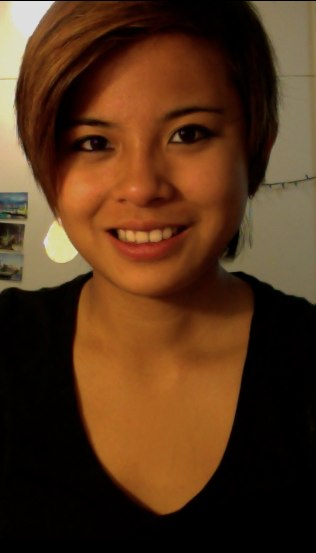It’s the latest thing and Mirella Deocadiz is on the edge
By Alicia Ramirez
For Mirella Deocadiz passion for the media runs in her blood. Deocadiz comes from a family who works in the industry.
Deocadiz’s mother used to work in broadcasting but now both of her parents work in print journalism. Despite her young age, Deocadiz has also worked at both print and TV institutions where she mostly did news reporting.
Deocadiz, a soft-spoken junior born to Filipino parents but raised in Hong Kong, was kind enough to sit and chat about one of the topics she is most interested about, the Digital Humanities.
On Sunday, November 4, at 2:00 p.m. on the dot, a petite woman with long brown locks, and maroon eyeglasses entered the Erdman conference room at Bryn Mawr College. She was bundled in a leopard-print scarf and a black winter coat.
Before the conversation went any further, there was the need to define: What is Digital Humanities.
“That’s a conversation that happens a lot! What is digital humanities? Even I struggle to come up with my own definition,” said Deocadiz.
Deocadiz added, “I hope by the time I graduate I really do come up with a stronger sense of what it is but right now my working definition of what is digital humanities is the application of digital technology to answer previous humanities questions and it’s also more interdisciplinary approach to examining and exploring the issues that come up in the humanities fields.”
Based on this defnition, Digital Humanities is a forum where students and faculty use technology to address issues in the different courses and topics that make up the humanities and make innovations that will benefit academia.
A busy woman
Deocadiz is a busy woman, in addition to her schoolwork and duties as a Digital Humanities fellow, she works at Bryn Mawr’s Writing Center and plays Rugby for “The Horned Toads”, the team of Bryn Mawr and Haverford Colleges.
In the fall of 2010, Deocadiz was one of many freshmen getting acquainted with college life and taking an Emily Balch Seminar – or ESem as it is known around Bryn Mawr. This is a semester-long freshmen writing seminar where students polish their writing skills and engage in vigorous discussion about a particular topic.
Little did she know the seminar’s professor and director of the Tri- College Digital Humanities program, Katherine Rowe, would be such an instrumental part in her development as a student.
“My freshman year I took an ESem, called “Bookmarks” with professor Katherine Rowe and I think that really change sort of my approach to thinking about media. I’ve always been really interested in media, Bryn Mawr is the only liberal arts college I applied to, I applied for media programs, communication programs I think that class really changed the way I looked at how I approach media studies,” said Deocadiz.
In this ESem students talked about different modes of communication such as spoken word, written word and progressed to talking about new media.
Deocadiz describes it as “a long arch of media history.”
At the end of the semester, professor Rowe put her in contact with Jen Rajchel, the Assistant Director of the Tri-College Digital Humanities program, who was a senior at the time. Rajchel had written her thesis digitally and had been part of the first ReHumanities working group.
ReHumanities is the first and only annual undergraduate symposium on new media.
From blogging about ReHumanities, to fellowships, to now organizing the symposium, Deocadiz has come a long way.
Thanks to her fellowship from the The Tri-College Digital Humanities Institute, she did a summer internship with Human Network Labs in Philadelphia. She was in charge of establishing a clean image for them to work on.
An independent major
Deocadiz’s interest in the Digital Humanities drove her to pursue an independent major in Comparative Media Studies. She admits that the process of getting her major was everything but high-tech.
“I did submit a traditional double-space, one inch margin proposal. That’s a technology right? The technology of written word… I emailed around I found that it is very difficult for an independent major to get guidance via email correspondence so I did sit down an talk with a lot of people to get to where I’ve gotten,” said Deocadiz.
This digital humanist relies on her iPad to be informed on the latest technological advances and do her course readings.
“I bought an iPad which one of my friends and I always joke that it screams digital humanist every time you whip it out and I have Flipboard on there. Flipboard is an app that sort of pulls together articles that are commenting about a certain topic so on that I
follow the technology section and I read that when I have time,” said Deocadiz with excitement.
Deocadiz transmits her passion for Digital Humanities up to the point it becomes contagious. However, her work is not complete, students are yet to take the hint.
Deocadiz said, “I’d like to see more hype about it. I know that people want to talk about this, I’ve been to various meetings. I went to a trustees meeting and all everyone wanted to talk about was technology. People are wanting to talk about it but we’re not given enough spaces and I don’t think it is fully discussed it and I don’t think that is, it is advertised.”

